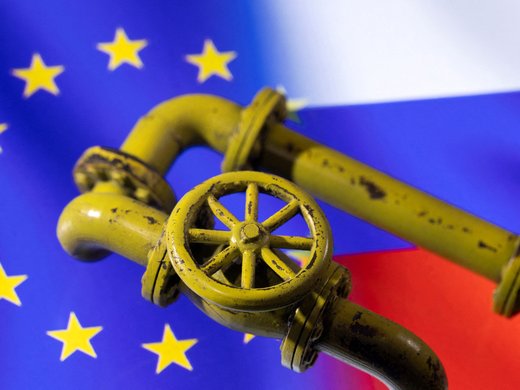In 2003, Chinese premier Hu Jintao turned off North Korea’s oil supply for three days to signal his displeasure over North Korean leader Kim Jong Il’s nuclear policy, forcing North Korean officials to sit down with Americans for talks in Beijing. The talks ultimately went nowhere, but at least Hu had taken a stand and used China’s considerable economic leverage to try to prevent a bad situation from getting dramatically worse.
Hu’s successor, Xi Jinping, has done no such thing. He has made no secret of his unhappiness with Kim Jong Il’s son, Kim Jong Un, who has repeatedly and flagrantly defied United Nations resolutions on nuclear weapons and ballistic missile tests. He is presumably all the unhappier because of Kim’s in-your-face sense of timing (the latest test fell on one of China’s most important holidays, the eve of the Lunar New Year). But so far, he has done nothing about it, and no one expects him to. Commentators in China have been scathing, openly calling Kim’s behavior humiliating. Sixty-six percent of Weibo users who took an online poll (which Chinese censors quickly blocked) expressed support for U.S. military action against North Korea, with only 18 percent opposed.
Xi is not known for his tolerance of opposition or disrespect, so his current deer-in-the-headlights routine on North Korea seems doubly odd. The standard explanation for his caution and reticence is that China cannot afford to do anything that might destabilize the Kim regime. Were North Korea to implode, China would face a flood of desperate refugees (most of whom would prefer to flee south to South Korea rather than north to China but cannot because of the two-and-a-half-mile-wide band of landmines, fences, and razor wire separating North and South Korea). More frightening than refugees, China might also face American military forces right on its border in a newly-united Korea. The status quo—uncomfortable as it is—seems vastly preferable from the perspective of China’s traditional understanding of its national interests.
But the status quo is changing. Given enough time, North Korea will eventually develop a genuinely devastating nuclear arsenal that includes real hydrogen bombs. It will master ballistic missile technology. It will fit a nuclear warhead to a long-range missile. This is worrisome not only because of North Korea’s track record of irresponsible behavior, but also, and more importantly, because of Kim Jong Un’s evident egomania and intoxication with power.
As psychologist Ian Robertson, author of The Winner Effect, notes, “excessive, unconstrained power” results in the overproduction of dopamine, a neurotransmitter and precursor to adrenaline closely associated with pleasure and reward. In elevated amounts and over a prolonged period of time, dopamine acts on the prefrontal cortex in such a way as to distort rational judgment and make people “over-confident, blind to risk, inclined to treat other people as objects, tunnel-visioned, narcissistic and protected from anxiety.” It can also make them feel invulnerable, unstoppable, and “god-like.” Kim may be behaving rationally now, or was behaving rationally at least until relatively recently, but given enough time he will cease to do so, just like Napoleon, Hitler, and Saddam Hussein. At some point, the world may well confront a well-armed Kim who feels confident enough to go for the ultimate prize: namely, the ability to boast that he succeeded where his god-like grandfather failed—in forcibly reunifying Korea.
Taking a hard line against North Korea would, of course, be a dramatic foreign policy change for China. States rarely opt for radical changes of course. There are a variety of reasons for this. One set of reasons is organizational. China may be an authoritarian state with a powerful leader, but the Chinese government is complex, cumbersome, conservative, and bureaucratic—in short, resistant to change. Another set is psychological. Leaders, like everyone else, defend their beliefs about the world as long as they possibly can, and only change them when evidence of error is overwhelming. Inertia is the default condition in international politics. For this reason, states almost never react to adverse international developments until late in the game. When they do react, most commonly it is because they have already suffered, or will obviously imminently suffer, extremely painful losses.
Xi is evidently not quite there quite yet, but other players can help him understand that dealing with Kim now is certainly better than dealing with him later. The key is to reframe the problem. When trends are clear, the status quo is not the relevant reference point for considering policy options. The relevant reference point is a North Korea with serious nuclear and missile capability and a megalomaniac leader, a Chinese public increasingly critical of Xi’s leadership on the issue, closer cooperation between the United States and both South Korea and Japan, and forward-deployed THAAD (Terminal High Altitude Area Defense) batteries. If China continues to drag its feet, the relevant reference point may include third-party sanctions on Chinese firms, and perhaps even U.S. military action of the kind the Chinese public appears so strongly to approve. These alternative reference points make policy change dramatically more attractive.
Washington and Seoul can try to ease Xi’s anxieties about taking a tougher line with Kim by reassuring him on crucial points: for example, committing to engage China as a full partner in a dialogue about North Korea’s future if it does implode, pledging not to deploy American troops north of the current demilitarized zone separating North and South Korea, and pledging to withdraw THAAD once the North Korean nuclear threat has passed. They can coordinate timing and messaging, and can engage in joint contingency planning to deal with any possible large-scale humanitarian emergency. They can also engage Xi in discussion of outside-the-box first-step measures that might actually relieve China of the necessity of cracking down, such as threatening to recognize an alternative North Korean government in exile.
At the end of the day, China is the only country that can backstop a serious effort to denuclearize the Korean peninsula. Xi must be brought to see that the more dangerous risk would be refusing to do so.


